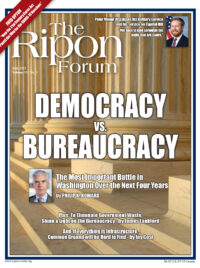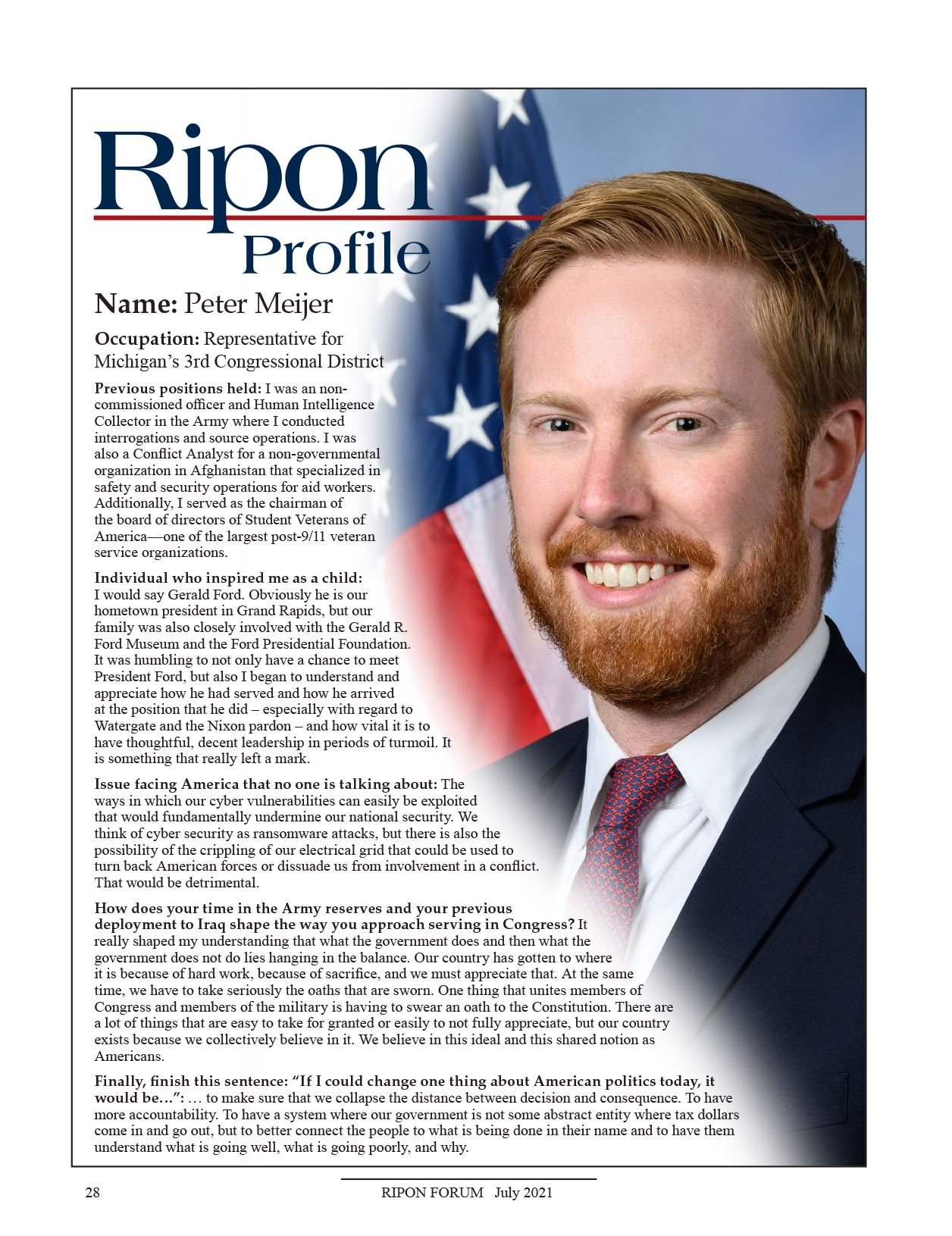Name: Peter Meijer
Occupation: Representative for Michigan’s 3rd Congressional District
Previous positions held: I was a non-commissioned officer and Human Intelligence Collector in the Army where I conducted interrogations and source operations. I was also a Conflict Analyst for a non-governmental organization in Afghanistan that specialized in safety and security operations for aid workers. Additionally, I served as the chairman of the board of directors of Student Veterans of America—one of the largest post-9/11 veteran service organizations.
Individual who inspired me as a child: I would say Gerald Ford. Obviously he is our hometown president in Grand Rapids, but our family was also closely involved with the Gerald R. Ford Museum and the Ford Presidential Foundation. It was humbling to not only have a chance to meet President Ford, but also I began to understand and appreciate how he had served and how he arrived at the position that he did – especially with regard to Watergate and the Nixon pardon – and how vital it is to have thoughtful, decent leadership in periods of turmoil. It is something that really left a mark.
Issue facing America that no one is talking about: The ways in which our cyber vulnerabilities can easily be exploited that would fundamentally undermine our national security. We think of cyber security as ransomware attacks, but there is also the possibility of crippling of our electrical grid that could be used to turn back American forces or dissuade us from involvement in a conflict. That would be detrimental.
Now, pair that with the current moment of the political dysfunction and the broader epistemological crisis that we are in. Right now, we are wide open to be exploited in order to compromise our national security and strengthen our adversaries. There is a proliferation of detached and alternate realities in this country, and that hobbles our ability to engage in an open debate and work through issues as a nation. That is something that deeply troubles me.
How does your time in the Army reserves and your previous deployment to Iraq shape the way you approach serving in Congress? It really shaped my understanding that what the government does and then what the government does not do lies hanging in the balance. Our country has gotten to where it is because of hard work, because of sacrifice, and we must appreciate that. At the same time, we have to take seriously the oaths that are sworn. One thing that unites members of Congress and members of the military is having to swear an oath to the Constitution. There are a lot of things that are easy to take for granted or easily to not fully appreciate, but our country exists because we collectively believe in it. We believe in this ideal and this shared notion as Americans. It is the same reason why esprit de corps in a military unit exist. It’s nothing you can put your finger on. Rather, it is a collective will of a group of individuals that are working towards a common effort. I think there is something beautiful and precious and remarkable about that.
Finally, finish this sentence: “If I could change one thing about American politics today, it would be…”: … to make sure that we collapse the distance between decision and consequence. To have more accountability. To have a system where our government is not some abstract entity where tax dollars come in and go out, but to better connect the people to what is being done in their name and to have them understand what is going well, what is going poorly, and why.





